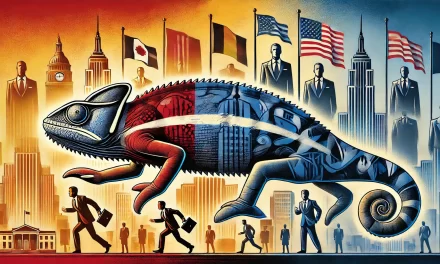Diversity—whether in ecosystems, cultures, or economies—is the foundation of resilience and sustainability. As the world faces challenges like climate change, biodiversity loss, and social inequality, embracing diversity is not just a moral obligation but a necessity for survival. This article explores why diversity is crucial for the long-term health and welfare of the planet, from environmental and economic stability to human well-being.
1. Biodiversity: The Key to a Healthy Planet
Biodiversity—the variety of life on Earth—is essential for maintaining ecosystems that support human life. A rich diversity of plant and animal species ensures that natural systems function properly, providing food, clean water, and medicine.
How Biodiversity Supports Ecosystem Stability
- Resilience Against Climate Change – Diverse ecosystems, like rainforests and coral reefs, are better able to adapt to changing temperatures and extreme weather events. For example, studies show that forests with a variety of tree species recover faster from droughts and wildfires.
- Natural Pest Control – When ecosystems are diverse, pests are controlled naturally by predator-prey relationships, reducing the need for harmful pesticides.
- Soil Health and Agriculture – Crop diversity prevents soil degradation and improves food security. Monoculture farming (growing a single crop) depletes nutrients, making land less productive over time.
According to the United Nations, up to one million species face extinction due to human activity. Protecting biodiversity is not just about saving wildlife—it’s about securing the future of our own species.
2. Cultural Diversity: A Path to Innovation and Social Progress
Cultural diversity—the inclusion of different ethnicities, traditions, and perspectives—drives creativity, innovation, and problem-solving. Societies that embrace cultural diversity tend to be more adaptable, prosperous, and socially cohesive.
The Benefits of Cultural Diversity
- Innovation and Economic Growth – Companies with diverse workforces outperform those with homogeneous teams. A Harvard Business Review study found that firms with diverse leadership generate 19% more revenue from innovation.
- Social Resilience – Inclusive societies have stronger social ties and lower conflict levels, making them more resilient in times of crisis.
- Knowledge Sharing – Different cultures bring unique knowledge, from indigenous conservation methods to alternative medicinal practices, enriching global understanding.
In a rapidly globalizing world, cultural diversity strengthens our ability to tackle global challenges by combining different perspectives and solutions.
3. Economic Diversity: Strengthening Global Stability
Economic diversity refers to the variety of industries, businesses, and financial systems that sustain global economies. A diverse economy is more resistant to recessions, supply chain disruptions, and technological shifts.
Why Economic Diversity Matters
- Prevents Overdependence on a Single Industry – Countries reliant on a single resource (e.g., oil) face economic collapse when demand drops. A diversified economy is more stable.
- Encourages Sustainable Development – Green energy, technology, and sustainable agriculture industries are essential for future economic resilience.
- Promotes Fair Trade and Inclusion – A diverse economy provides opportunities for more people, reducing poverty and inequality.
The World Economic Forum highlights economic diversity as a key strategy for long-term recovery from global crises, including pandemics and climate change.
4. Genetic Diversity: The Foundation of Evolution and Health
Genetic diversity—the variety of genes within a species—is crucial for evolution, disease resistance, and adaptation to environmental changes.
How Genetic Diversity Impacts Survival
- Disease Resistance – Populations with low genetic diversity are more vulnerable to diseases. For example, the Irish Potato Famine was worsened by a lack of genetic variation in crops.
- Climate Adaptation – Genetic variation allows species to evolve and survive in changing environments. For example, some coral species are adapting to warmer ocean temperatures due to genetic diversity.
- Human Health – Genetic diversity in human populations reduces the risk of inherited diseases and strengthens immune responses.
A report from the National Institutes of Health underscores the importance of genetic diversity in medical research and the development of treatments for diseases.
5. Environmental Diversity: The Future of Sustainable Living
Environmental diversity—varied landscapes, climates, and ecosystems—ensures the planet can support life in different forms. Urbanization, deforestation, and pollution threaten this balance.
Solutions for Protecting Environmental Diversity
- Rewilding and Conservation Efforts – Restoring natural habitats helps reverse biodiversity loss.
- Sustainable Urban Planning – Green cities with diverse plant life improve air quality and lower temperatures.
- Reducing Carbon Footprints – Transitioning to renewable energy sources preserves diverse ecosystems.
Governments and organizations, like the International Union for Conservation of Nature (IUCN), are prioritizing environmental diversity in conservation strategies to ensure a sustainable future.
Conclusion: Embracing Diversity for a Thriving Planet
Diversity is not just about fairness—it’s about survival. A planet rich in biodiversity, cultural variety, economic flexibility, and genetic strength is better equipped to handle challenges like climate change, pandemics, and social inequality. Protecting and promoting diversity in all forms is the key to a resilient and sustainable future.
By investing in conservation, supporting inclusive policies, and embracing diverse perspectives, we can secure the health and welfare of our planet for generations to come.
SEO Meta Title:
Why Diversity Is Essential for the Future of the Planet
Meta Description:
Diversity is key to a sustainable future. Learn why biodiversity, cultural inclusion, economic variety, and genetic resilience are crucial for planetary health and welfare.






Recent Comments